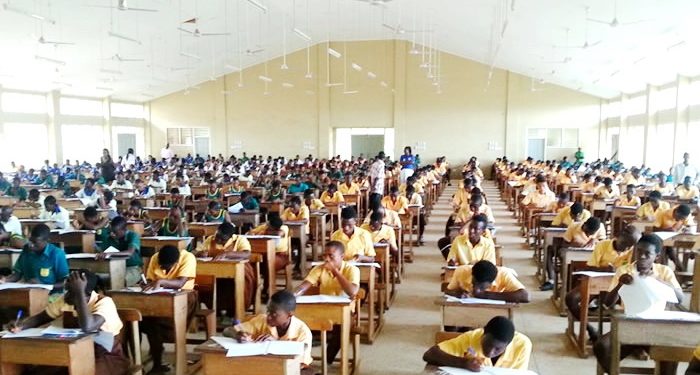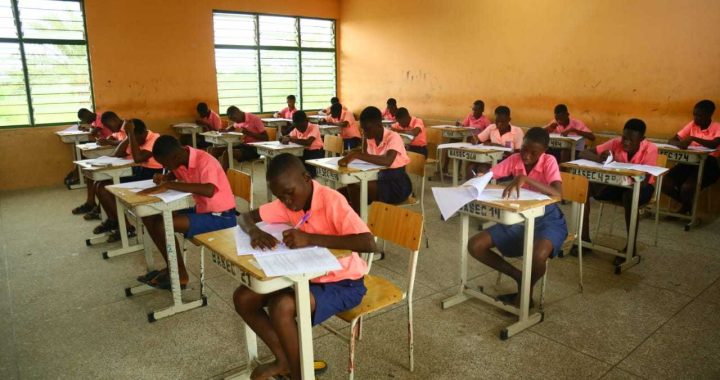What is the rationale for the 2019 physical education syllabus?
The teaching and learning of Physical Education is based on principles from science, psychology, sociology and movement education. Physical education programme is an integral part of the total education of every child for holistic development and well-being, from kindergarten to Senior High school.
Quality physical education programmes are needed to increase the physical competence, health-related fitness, self-responsibility, stress management, recreation and enjoyment of physical activities for all learners including those with learning or physical disabilities, environmentally or culturally deprived and the gifted so that they can be physically active for life. They are also needed for an increase in productivity, reduction of national revenue on health, absenteeism, corruption, etc.
Related Post:
What is the rationale for the 2019 Primary School Computing Syllabus?
Critical fallouts from ongoing nationwide Curriculum Training
Sex-for-grade undermining quality education – UPSA Lecturer
However, Physical education programmes can only be beneficial to learners and society if they are well planned, implemented and managed.
PHILOSOPHY
The teaching and learning of physical education is based on constructivist and fitness models.
Teaching Philosophy
Physical education guides learners discover and develop knowledge, skills, attitude, values, fitness, health and social responsibility through interaction with the environment. Through the study of and the experience that learners are exposed to in Physical Education and Health, they will become honest, creative, critical thinkers and responsible citizens.
Learning Philosophy
Physical Education Curriculum focuses on building the character of the learners, guiding them using social constructivist approach so that they are able to create knowledge themselves, use such knowledge for the betterment of self and the society in which they live.
The Physical Education graduate must demonstrate values such as respect, appreciation of the diversity of Ghana’s societies, equity and fairness, commitment to excellence, teamwork and collaboration and truth and integrity.
General Aim
The curriculum is aimed to develop individuals who are literate, good problem solvers, have the ability to think creatively and have both the confidence and competence to participate fully in the Ghanaian society as responsible local and global citizens.
Subject Aims
The national standards-based physical education curriculum aims to ensure that all learners:

 Bimbilla: College of Education students leave campus as CETAG strike continues
Bimbilla: College of Education students leave campus as CETAG strike continues  Angie’s Leaked Tape: Angie Stylish Has Disgraced Konongo Odumase School – School Mate Angrily Speaks
Angie’s Leaked Tape: Angie Stylish Has Disgraced Konongo Odumase School – School Mate Angrily Speaks  1st STEM College of Education in Ghana: Bawumia cuts sod for construction
1st STEM College of Education in Ghana: Bawumia cuts sod for construction  Stop denying students exeat; NAGRAT to SHS Heads
Stop denying students exeat; NAGRAT to SHS Heads  BECE; Four Teachers caught up for assisting students- WAEC
BECE; Four Teachers caught up for assisting students- WAEC  North Tongu District BECE Candidates prevented from wearing shoes or belts
North Tongu District BECE Candidates prevented from wearing shoes or belts  Bawumia’s smartphone pledge misguided and visionless – Adongo
Bawumia’s smartphone pledge misguided and visionless – Adongo  Good Grow: The Marijuana Farm Founded by Akufo-Addo’s Daughters
Good Grow: The Marijuana Farm Founded by Akufo-Addo’s Daughters  National Food Suppliers for Free SHS set to picket at Education Ministry
National Food Suppliers for Free SHS set to picket at Education Ministry  Information Ministry justifies ¢151k paid to staff as Covid-19 risk allowance
Information Ministry justifies ¢151k paid to staff as Covid-19 risk allowance